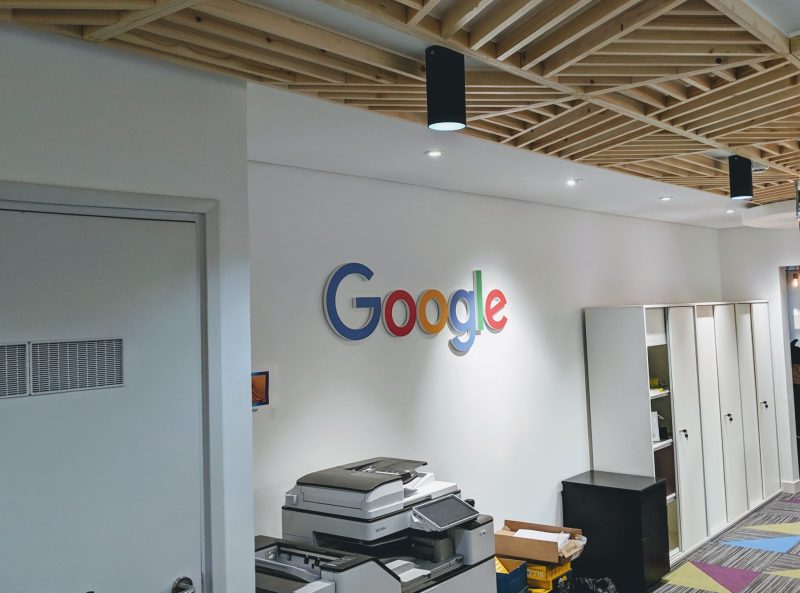“The only thing artificial intelligence (AI) can’t do better than human beings is hunting.”
This popular joke speaks to the widely held fear that someday, we might all get kicked out of our jobs, thanks to AI, which has recently dominated conversations around technology and society.
Described as the centre of the Fourth Industrial Revolution (4IR), AI is changing how people across the globe live and do business; little wonder there is a growing interest from governments and investors in the technology, particularly due to the advent of the COVID-19 pandemic.
Artificial Intelligence in Africa
Africa, the world’s second most populated continent, appears to be struggling to catch up with the AI revolution. Last year, Artificial Intelligence companies globally attracted $77.5 billion in investment, a 115% increase from the $36 billion recorded in 2020, according to Tortoise Intelligence.
Of the over $700 million raised by African startups in 2020, the AI sector contributed just 2.5%, meaning that investor preference in the sector is still relatively low. Also, very few startups account for a large part of the investments in the continent’s AI ecosystem.
In 2019, Africa’s Artificial Intelligence ecosystem raised $11.27 million, a 223% increase from the $3.6 million recorded in 2018. Interestingly, Tunisia’s InstaDeep $7 million raise represents 62% of the total investment made that year in the ecosystem. In the following year, 2020, the $6 million funding of South Africa’s DataProphet accounted for more than half of the funding attracted to the continent.
Read also: Why funding into African AI startups remains poor despite a global boom.
South Africa leads the pack
South Africa tops the list of countries that dominate AI in Africa, according to the 2022 State of AI in Africa report (PDF) published recently by AI Media Group. This is hardly surprising because South Africa is considered the hub of AI development on the continent.
The country was also instrumental in forming a pan-African AI for Africa Blueprint (PDF) that helps member-states develop policies, strategies, and plans that ensure growth and prosperity within the context of the 4IR digital revolution.
In the breakdown of the countries on the continent with the highest number of AI companies, South Africa leads the pack with 726, followed closely by Nigeria with 456. Egypt and Kenya have 246 and 204, respectively.


Others on the list are Morocco – 126, Ghana – 125, Tunisia – 103, Cameroon 54, Tanzania – 44, Uganda – 44, Zimbabwe – 44. Mauritius – 35, Ivory Coast – 29, Algeria – 26, Senegal – 23, Rwanda – 21, Zambia – 20, Ethiopia – 18, Botswana – 16, and DR – 10.
In the investment landscape, the report reveals that out of the 226 investments in Africa’s AI ecosystem, 55% were made up of seed, pre-seed, and angel funding, compared to 27% of non-equity assistance and grants.
Also, 82% of deals required early-stage support, which is considered a possible pointer towards a critical success factor for traction in this sector. Some 141 separate organizations were identified as funding these deals.
Read also: Meet Reach – the Artificial Intelligence Startup Focused on Helping You Track Your Expenses.
How are African governments responding to AI?
According to the report, countries supporting this sector with national strategies, associations & agencies that promote the AI/Deep Tech sector are garnering success irrespective of size.
Mauritius was the first country in Africa to publish a national AI strategy. In 2019, Kenya followed suit, focusing on blockchain and AI as key business-enabling technologies. The South Africa-headquartered African Union Development Agency (AUDA-NEPAD) is also working on “The African Union Artificial Intelligence Continental Strategy For Africa.”
Egypt has also established a National Council for Artificial Intelligence. Last year, the country’s Minister of Communications and Information Technology and Chairman of the Council, Amr Talaat, launched an official national AI platform.


In a related development, Tunisia recently created an AI-focused industry association called the L’Association Tunisienne pour l’Intelligence Artificielle. In January, Tunisian startup Instadeep closed the largest funding round of any African AI start-up, raising a $100 million series B.
In Botswana, the government encourages organizations to set up research labs in the country and gather AI talent.
Though Nigeria has no stand-alone national AI strategy, in November 2019, it published the National Digital Economy Policy and Strategy 2020-2030 (PDF) that identified AI via its Digital Society and Emerging Technologies pillar, leading to the creation of the National Centre for Artificial Intelligence and Robotics.
Related article: Extended Reality (XR): Here is why Nigeria should not miss the wave.
AI will contribute greatly to Africa’s economy
In recent years, African companies have been investing in Artificial Intelligence as it can transform the continent for good. The State of AI in Africa report shows that many companies across the continent have been leveraging AI for business efficiency in the past five years.
In 2019, tech giant Google opened its first AI centre in Africa in Ghana’s capital, Accra. Last year, NVIDIA — one of the biggest chip makers in the world and leader in deep learning — launched the Emerging Chapters Programme aimed at helping African communities scale AI projects. Just recently, EarthRanger, a technology built by the Allen Institute for AI owned by Microsoft’s late co-founder, Paul Allen, was deployed to fight locust swarms in South Africa.


Similarly, many startups on the continent use AI to create solutions for their customers. For instance, Voyc, a South African startup, employs AI to remodel traditional call centres’ quality. Reach, another AI startup, is focused on helping users track their expenses.
Investment in AI has attracted $500 million from 120 companies across 12 countries in the region.
“Africa is in a fantastic position to drive and embrace AI. The free flow of data across various sectors and the big companies coming to Africa must support the growth of the AI start-ups and help governments understand the value of investment in AI,” John Kamara, co-founder of AI Center of Excellence Africa, submitted in the report.
Per projections by consulting firm PricewaterhouseCoopers (PwC), modern technologies like AI could contribute more than $15 trillion to the global economy by 2030. A recent report by a pan-African research centre also revealed that AI could expand Africa’s economy by a staggering US$1.5 trillion – about 50% of its current gross domestic product – if the continent could only capture 10% of the fast-growing AI market.
“With $500 trillion in wealth held globally in 2022, Africa represents the greatest investment target and opportunity,” Stephen Ibaraki, founder chair of outreach at United Nations—International Telecommunication Union AI for Good project, said.
But, of course, it will require greater collaboration between African governments and other stakeholders to address existing setbacks to AI adoption on the continent.
One thing, however, is certain: AI has come to stay in Africa.






